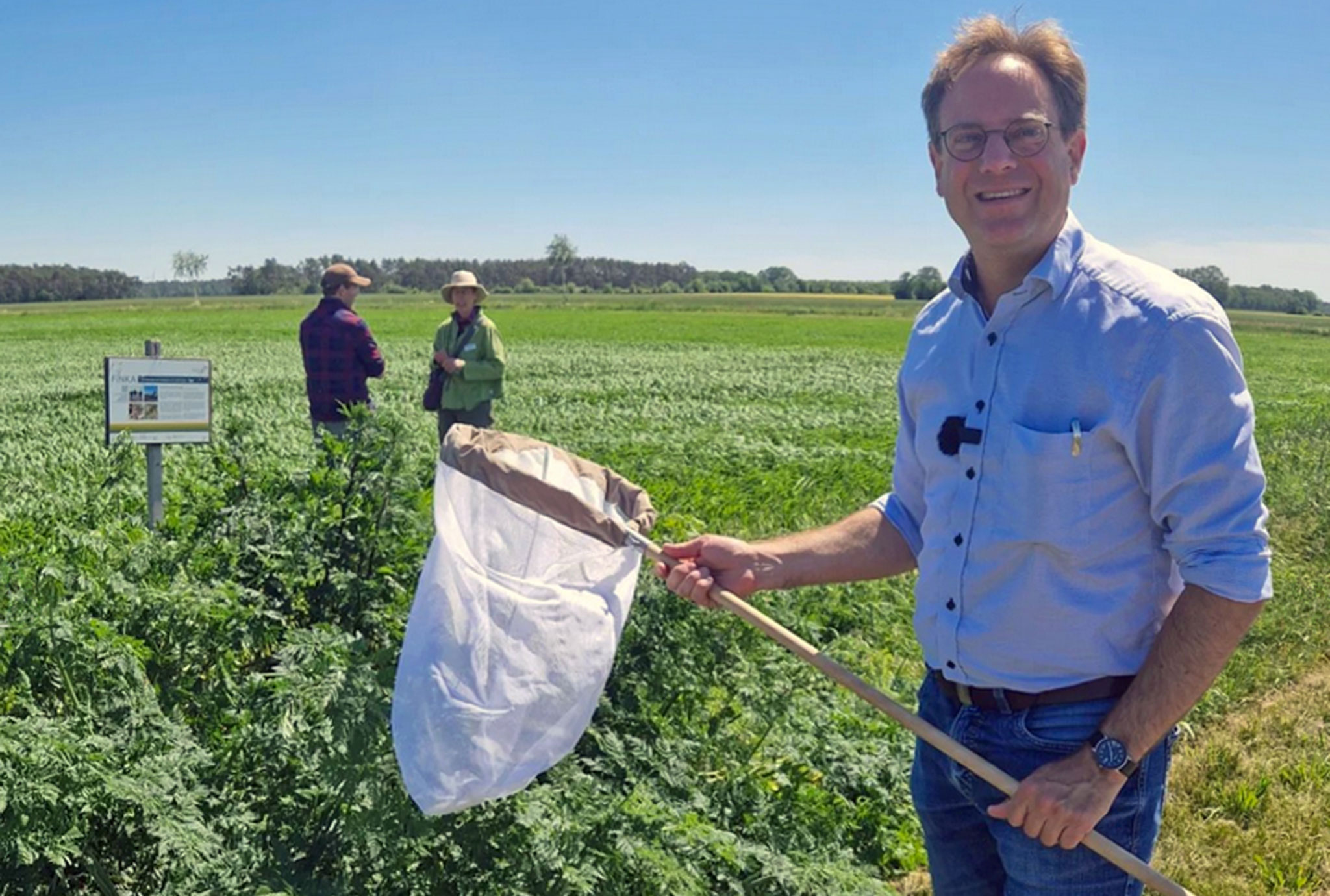Even small amounts of pesticides harm insects
 With projects such as FINKA, Christoph Scherber initiates broad discussions in agriculture on how to increase biodiversity on arable land. © Landvolk Hannover
With projects such as FINKA, Christoph Scherber initiates broad discussions in agriculture on how to increase biodiversity on arable land. © Landvolk Hannover
Pesticides have very negative effects on insects, even at very low doses, even if they do not kill the individual animals. This is the conclusion of a study published in the journal Science, for which researchers analysed the effects of over 1,000 chemicals used in plant protection. An interview with Christoph Scherber, Head of the Centre for Biodiversity Monitoring at the LIB, who is testing alternative agricultural methods without the use of chemicals in projects with farmers.
A decline in biodiversity and the mass of insects has been observed worldwide for many years. Habitat fragmentation, introduced species, increasing urbanisation, climate change and intensive agriculture are known causes.
The current study now shows that pesticides affect the behaviour of insects even at minimal doses and significantly disrupt their movements and reproduction. However, the safety assessments of chemical substances usually only take lethal doses into account. In contrast, the more subtle chronic effects of lower concentrations on species that are not specifically targeted for killing with plant toxins are often little or only poorly researched.
Mr Scherber, how do you rate the importance of the study?
This study fills an important gap on the effects of plant protection products on non-target organisms and in particular on the long-term effects at low concentrations. The team of authors worked extremely precisely and with model organisms (Drosophila) as well as with other insect species (mosquitoes and butterfly caterpillars). What is surprising is both the large number of behavioural changes observed in insects and the strength of the effects at higher temperatures. I expect that this study will have a major impact on future dose-response analyses of plant protection products.
What do you say about the methods?
The study uses a variety of precise methods and measurement protocols that are well established in insect research. The range of plant protection products analysed is outstanding and a study like this has actually been necessary for a long time. In general, it can be said that such independent studies can only be carried out at research institutes and universities. The current study fills an important gap here, especially as it works with original data and is not a mere synthesis of existing studies.
Can the laboratory data be transferred to the field?
Of course, as this is a laboratory study, the results cannot be transferred to the field for the time being. However, as insects are also exposed to a weakly concentrated cocktail of all kinds of plant protection products under field conditions – and the larval stages are often particularly badly affected – the study provides the first important indications of effects in the field. This study is one of the first of its kind, and the team of authors has been appropriately cautious in its formulation – but the significance of the results under real conditions will only be revealed in future studies.
What consequences could the study have for the authorisation of pesticides?
In general, efforts must be made to ensure that test laboratories and pesticide manufacturers finally test for combinations of pesticides. The laboratories there work very efficiently and it should be possible to incorporate extended test procedures. The reports, which usually remain under lock and key, should also be made more accessible and transparent. In Germany, we also really need a nationwide network of measuring points for pesticides and pesticide monitoring. It is incomprehensible why this data is still not available, even though farmers have to document it very meticulously.
Original Study in Science:
Contact:
LIB – Leibniz Institute for the Analysis of Biodiversity Change
Museum Koenig Bonn
Prof. Dr. Christoph Scherber
Deputy Director LIB
Head of Centre for Biodiversity Monitoring and Conservation Science
+49 228 9122-450
c.scherber@leibniz-lib.de


